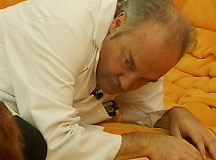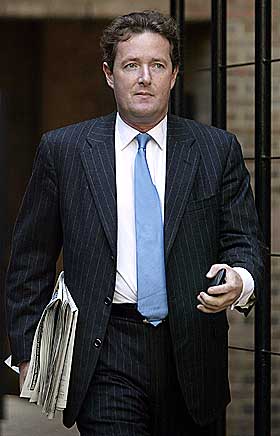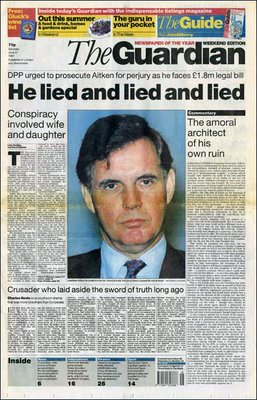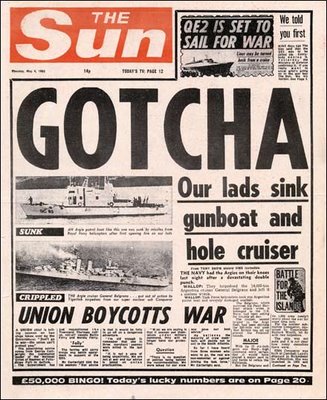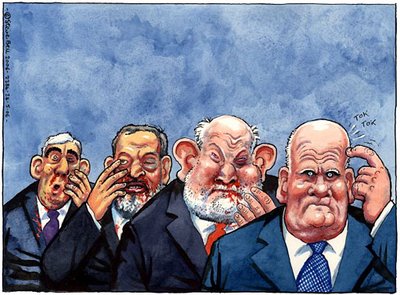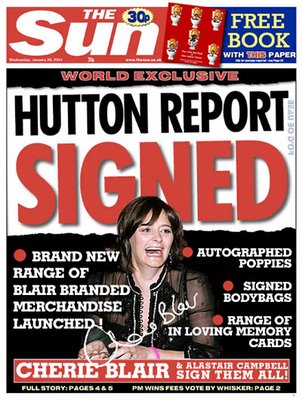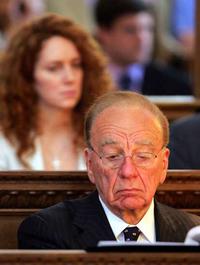Early day motion calls Brian Haw's protest an unacceptable extreme and compares him to animal rights activists.
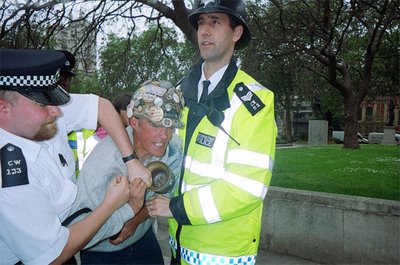 Congratulations then to two of the Conservative party's MPs' who have decided to line themselves up on the side of Tony Blair and the government against Brian Haw. In response to the 78 police who raided Haw in the middle of the night, Peter Luff has put down the following early day motion, in opposition to one from Lembit Opik:
Congratulations then to two of the Conservative party's MPs' who have decided to line themselves up on the side of Tony Blair and the government against Brian Haw. In response to the 78 police who raided Haw in the middle of the night, Peter Luff has put down the following early day motion, in opposition to one from Lembit Opik:leave out from first `the' to end and add `way that those who carry legitimate protest to unacceptable extremes can discredit the cause they support and endanger the liberties of the majority; notes the parallels with the animal rights lobby; and reluctantly supports the action that has been taken against Mr Haw.'.What about how Brian Haw has been conducting himself has been an "unacceptable extreme"? Is Luff referring to how Haw used to ring a bell when Blair's motorcade passed by to go to Prime Minister's Questions, which ended up with the police removing it from him and later returning it without the clapper? How has Haw's actions discredited the cause he supports? His dedication to his cause if anything shows just deeply his feeling is, and inspires many of us who would love to do what he is doing but can't because of other commitments. How has he endangered the liberties of the majority? The only people endangering the liberties of the majority were those who drew up the laws banning protests within 1km of parliament without prior permission, an arrogant example of the worst of this government's illiberal excesses. It was an act of pure spite to get rid of Haw, who has and still is a cause of embarrassment to Blair. It is the government, and those that allege that Haw and his protest are a threat that are truly endangering liberties.
Then we have the noting of the parallels with the animal rights lobby. What part of the animal rights lobby are we talking about here? Are we talking about the protest outside the Oxford laboratory, where even stricter restrictions have now been imposed by the judge? Even under those restrictions, 50 members of the public are still allowed to protest, even if only on one day. Mr Haw is just one man. Professor John Stein, while supporting the injunction there worries about protestors becoming victimised and being tarred as extremists. Maybe what Luff is actually alluding to is the animal rights extremists who dug up the body of a relative of those who ran a guinea pig farm, who led a campaign of terror? If so, it amounts to an outrageous slur against a man who has never used violence or intimidatory tactics.
Lembit Opik's EDM sets out exactly what is behind the removal of Haw's banners and possible removal:
symbolic of the erosion of liberty in a country where the freedom to protest should be fundamental to democracy.The likes of Peter Luff, Peter Bottomley and any others who subsequently sign his EDM are complicit in the erosion of liberties which has gone on under "New" Labour.
